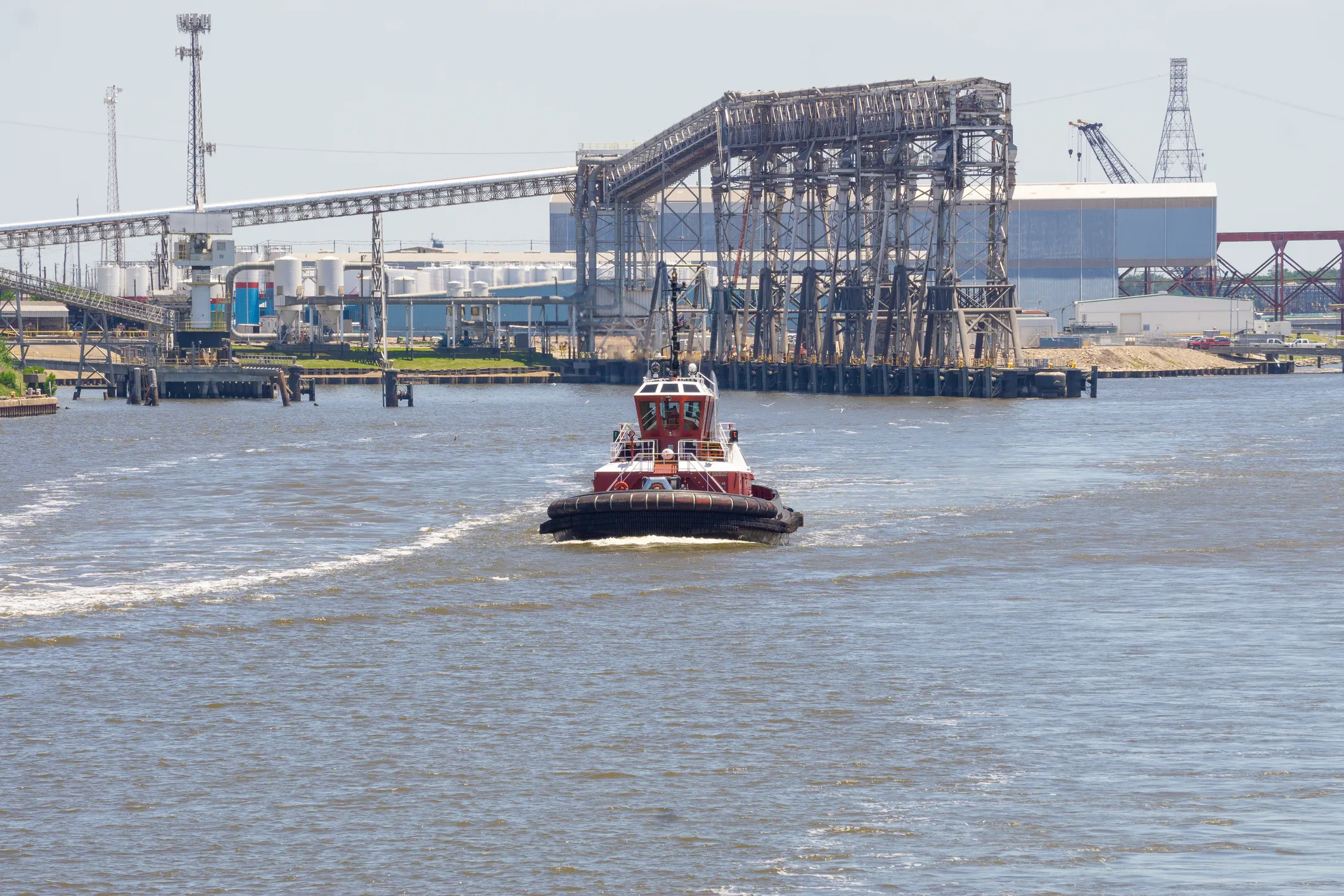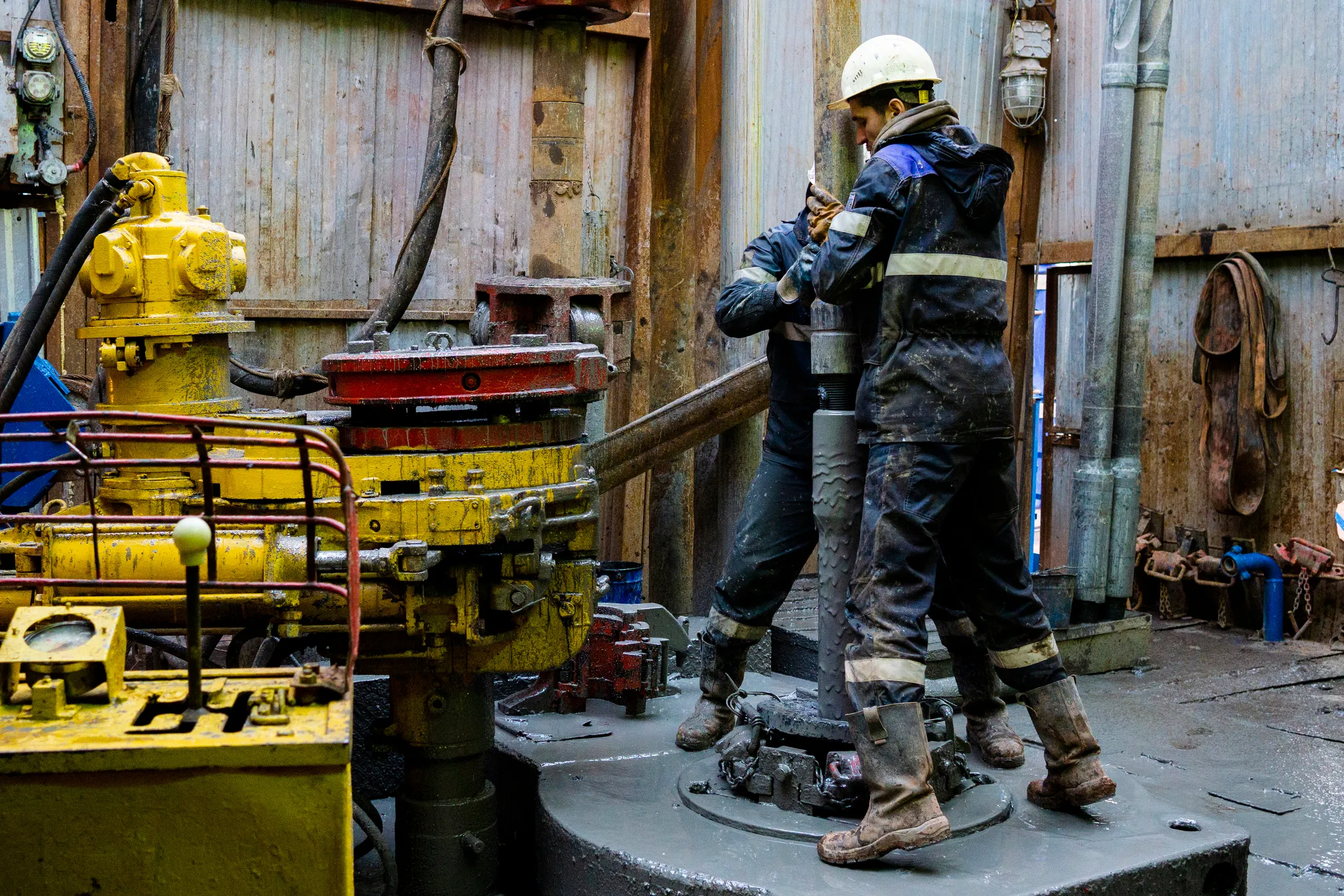Houston Maritime Injury Attorney

At Havens & Associates, our experienced maritime lawyers are dedicated to representing clients in complex maritime and admiralty law cases. Maritime law, also known as admiralty law, governs a unique and intricate set of rules designed to address incidents and disputes occurring on navigable waters. These cases often involve challenges that require deep legal knowledge and skill to navigate effectively.
Maritime workers face both advantages and obstacles under the law, depending on the circumstances of their case. Our attorneys are skilled at identifying these nuances and using them to our clients’ advantage. Whether you’re dealing with an injury at sea, a cargo dispute, or any other maritime legal issue, we’re here to help you chart a clear course toward justice.
Call (713) 955-2215, and we can explain your rights to demand compensation in a workplace injury or wrongful death lawsuit.

Have you been hurt in a maritime accident?
Accidents and injuries in the maritime sector can occur at terminals, shipyards, or on the open water, often stemming from occupational hazards, insufficient training, inadequate safety equipment, or poor vessel upkeep. Thankfully, the Jones Act and other maritime regulations typically cover workers’ injuries and fatalities under these circumstances.
How do maritime accidents happen?
Injuries among maritime employees can arise from a variety of incidents, with some of the most frequent being:
- Tugboat accidents
- Barge accidents
- Offshore oil rig accidents
- Fires and explosions
- Slips, trips, and falls
- Electrical contact and electrocution
- Heavy machinery and equipment failures
- Basket transfer injuries
- Crane and hoisting injuries
- Helicopter crashes
Maritime workers across different roles may face injury or even death from these types of accidents. An experienced Houston maritime injury attorney with the team at Havens & Associates, are equipped to assess the merits of a claim following an accident by evaluating any wrongful actions or negligence on the employer’s part.
How Havens & Associates Helps Injured Maritime Workers
When you work with the skilled legal team at Havens & Associates, you benefit from our decades of combined legal experience, focusing on maritime and admiralty laws. We’re an award-winning firm with honors from:
- Multi-Million Dollar Advocates Forum®
- Million Dollar Advocates Forum®
- The Top Trial Lawyers in America®
Here are just some of the benefits of working with our Houston maritime injury attorneys:
- Depth of experience in maritime injury cases
- Genuine care and personalized legal advice
- Insight into the defense’s strategy
- A long history of successful verdicts
We believe that results speak for themselves. We have a strong history of six-and-seven-figure settlements and jury awards, including a recent victory securing $600,000 for a client injured in an oil rig accident.
What kinds of compensation can We help you receive for a maritime injury?
Economic Damages
Every case is unique, so the specifics of your maritime injury settlement may vary. In general, injured maritime workers may demand compensation for the following:
- All medical care related to the accident, like a hospital stay, surgery, skin grafts, and special care
- Any rehabilitative services, like physical or occupational therapy
- Prescription medications
- Lost wages from time missed at work to heal from the injuries
- Loss of earning potential if they are unable to continue in the line of work they were in before the accident and must take a lower-paying job
- Lost earnings if they are disabled to the point that they cannot hold gainful employment
- Accommodations in a skilled nursing facility
Non-economic Damages
Your Houston maritime injury attorney may also demand that you receive compensation for intangible (non-economic) losses, like:
- Pain and suffering from your injuries
- Emotional trauma or mental anguish from the accident or due to your changed abilities
- Scarring or disfigurement
- Loss of consortium with your spouse (intimacy)
- Loss of companionship (damaged relationships with loved ones)
- Loss of guidance (unable to be the parent you once were to your children)
Although it’s harder to quantify your non-economic losses, they still have value. You’re entitled to be compensated for the diminished quality of life you now have due to the accident.
Why do Maritime Accidents Happen?
Maritime workers face unique challenges on the job. Accidents are plentiful and arise in many ways, the most common being inadequate employee training, lack of safety gear, and improper vessel maintenance.
What are some common maritime injuries?
Maritime work-related injuries can be severe and often disabling. Some of the more common injuries include:
- Slip-and-fall injuries due to uneven, slippery, or cluttered surfaces
- Falling overboard when loading cargo, while out to sea, or when hauling fishing gear or a catch over the side of the ship
- Burn injuries from fires, contact with hot fluid, chemical burns, or electrical burns
- Poisoning or asphyxia from working around toxic substances in enclosed spaces for extended periods
- Struck-by or crushing injuries in pier or dock accidents, which may cause involuntary amputation or internal organ damage
- Repetitive motion injury to the leg, hip, back, neck, or extremities
- Broken limbs or dislocations
We represent all types of injured maritime workers
Our Houston maritime injury attorney represents workers like you, not big corporations. The following are just some of the workers we represent:
- Seamen, including masters, pilots, mates, coxswain, barge, tugboat, and crew boat workers
- Offshore oil rig and gas workers, including pipefitters, roustabouts, drillers, operators, and derrick hands
- Workers at ports or in harbors, like longshoremen and harbormasters
- Houston maritime injury attorney, tugboat
A Quick Look at Houston's MAritime Industry
With over 200 private and public terminals, the Port of Houston is a bustling hub, accommodating more than 8,200 seagoing vessels and 215,000 barges annually.
Houston, TX has a wealth of maritime career opportunities, with the activity on the ports generating 2.5 million jobs. Given this context, it’s not surprising that Houston sees many maritime injury cases. Maritime workers, who face unique challenges and risks at sea, often lack the protections available to land-based employees. As a result, many turn to specialized maritime injury lawyers in Houston to defend their rights and seek compensation for injuries and losses.
Houston maritime law
The Jones Act
The Jones Act is a federal law establishing a U.S. Merchant Marine. It also extends the Federal Employer’s Liability Act (FELA) liability protection to seamen injured in the line of duty, permitting them to file a personal injury lawsuit against their employer.
The Longshore and Harbor Workers’ Compensation Act
The LHWCA provides workers’ compensation for persons other than seamen engaged in maritime employment. This compensation is generally provided without regard to the injured worker’s fault.
Outer Continental Shelf Lands Act
The Outer Continental Shelf Lands Act extends the LHWCA’s compensation benefits to offshore workers engaged in oil and gas operations on the Outer Continental Shelf.
When do MAritime Laws Apply?
Maritime, or admiralty law, governs activities and legal issues for shipping and navigation industries. They apply to all navigable waters for travel, commerce, or trade between states or foreign countries. Navigable waters include:
- High seas
- Inlets
- Bays
- Harbors
- Rivers
Federal maritime laws apply if these bodies of water run between states. If the body of water is contained entirely within one state, such as a lake, then federal maritime jurisdiction does not apply. If you have been injured on a body of water entirely within Texas borders, you may still be able to recover damages. Ask your Houston maritime injury attorney which laws apply in your case.

What’s the process for filing a maritime injury claim?
Filing a maritime injury claim depends on which laws govern your case. Start the process by talking to an experienced maritime accident attorney. They know the laws and requirements for filing a claim under each one.
Maritime accident claims generally have a lower burden of proof than a standard personal injury case, but your attorney must still prove your claim. They’ll gather evidence against the defendant(s), like photos, videos, witness statements, or the safety records of the vessel or job site.
Many claims can be settled out of court, with both parties negotiating a fair settlement. However, the case moves to trial if the other party does not compromise. If it’s a maritime law case, it’s held in federal court.
Can I bring a wrongful death suit if my loved one died in an offshore accident?
Yes, under the Death on the High Seas Act (DOHSA), specific beneficiaries of a deceased seaman or offshore worker may file a wrongful death suit against the employer if the deceased was injured in the course of their job working at least three miles offshore.
The spouse, children, and parents may be entitled to recover damages like loss of companionship and support, loss of financial contribution to the family, funeral and burial expenses, and the emotional trauma and pain and suffering of their loss.
Our Houston maritime injury attorney will fight to ensure that your family receives the maximum compensation for your loss.
Schedule your free consultation with a Houston Injury Lawyer today
If you’re a maritime worker injured on the job, you can’t afford to settle for less. You need skilled legal advice from a Houston maritime injury attorney.
You may be tempted to accept a fast settlement from your employer or another responsible party, but it’s likely not the total amount your case is worth. It may not even be enough to cover long-term treatment or care for complications from your injury. Call (713) 955-2215 and book your free consultation to fight for what you deserve.

Resources for those Injured in a Maritime Accident
Emergency care
- United States Coast Guard
- Maritime emergency line – (504) 589-6225
- Houston Area Maritime Medical Facilities
- Phone – (713) 790-3333
Legal assistance
- Havens & Associates – Houston Maritime Injury Attorneys
- 3401 Allen Pkwy UNIT 300, Houston, TX 77019
- Phone – (713) 955-2215
- Office hours – Phones are answered 24/7
Contact Us
For a Free Consultation

